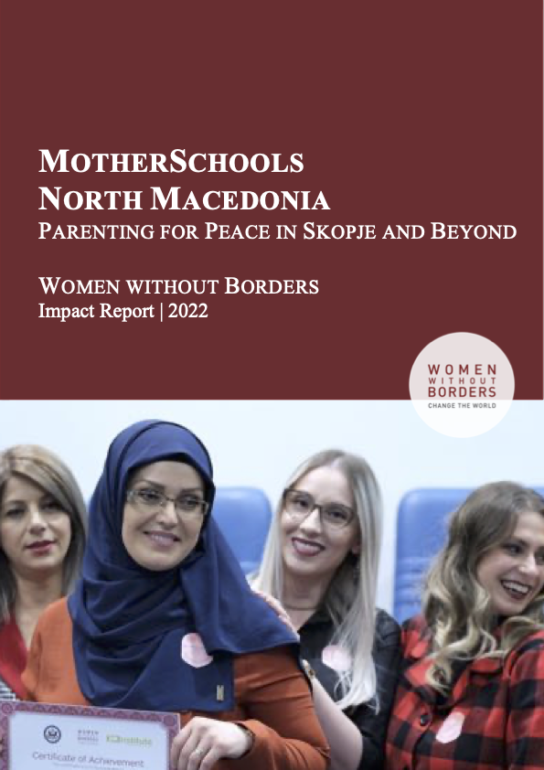Between 2018 and 2021, WwB implemented two rounds of its ‘MotherSchools: Parenting for Peace’ Model in North Macedonia, with seven groups convening in Čair, Gostivar, Ljubin, Saraj, Studeničani, and Tetovo. This impact report offers an overview of the project in North Macedonia, presents WwB’s impact findings, and concludes with a series of recommendations.
Between the dissolution of Yugoslavia and the present day, Western Balkan countries have experienced several waves of radicalisation. As evidenced by more recent waves, the depiction of violent extremism as an external and imported phenomenon can no longer be sustained. Homegrown radical groups have consolidated their presence, taking advantage of new and evolving pressures on identities that are shaped in large part by struggles with the lingering legacies of violent conflict and a history of shifting geopolitical circumstance. In light of lower levels of extremist recruitment in recent years, North Macedonia is in a period of relative calm during which community-based prevention efforts are most relevant and effective. During this stage, communities tend to be more receptive to P/CVE programming, thus reducing the barriers to entry. Against this background and owing to the momentum and demand for MotherSchools programming across North Macedonia, Women without Borders (WwB) in cooperation with local implementing partner ZIP Institute rolled out two rounds of its ‘MotherSchools: Parenting for Peace’ Model in Čair, Gostivar, Ljubin, Saraj, Studeničani, and Tetovo between 2018 and 2021, addressing central contributing factors leading to radicalisation in North Macedonian communities.
Ahead of launching its seven MotherSchools groups, WwB trained a pool of local professionals as prospective MotherSchools Teachers and Notetakers. Fourteen Teachers across seven groups went on to deliver the Curriculum to 104 mothers who were concerned that their community environment could make their children susceptible to radicalisation. Upon graduating from the MotherSchools programme, the mothers as participants had each received at least forty hours of training to become role models and prevention stakeholders in their families and communities.
This impact report offers an overview of the MotherSchools project in North Macedonia, presents WwB’s impact findings with respect to the programme beneficiaries, and concludes with a series of recommendations put forward by project beneficiaries. Applying a qualitative data analysis (QDA) to the 248 semi-structured Entry and Exit Interviews conducted before and after the programme, WwB found improvements on three levels. On the personal level, mothers built up the necessary self-confidence and individual capacity to become a first line of defence against extremism in their homes and communities. At the familial level, mothers restructured dynamics and adopted parenting styles that improved their relationships with their children and husbands. At the community level, they built prevention networks, broke the silence around and spread awareness of extremism, and strengthened resilience by disseminating their learnings to the wider community. As one of sixteen countries to adopt the programme, North Macedonia is now part of WwB’s global effort to equip mothers with the knowledge and skills to become central violence prevention allies in at-risk communities.


